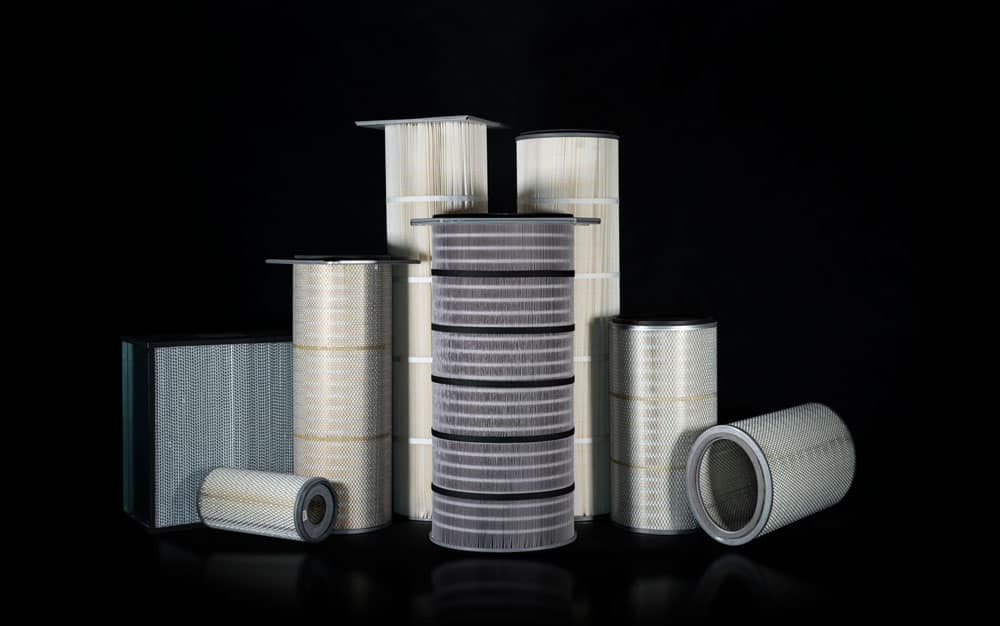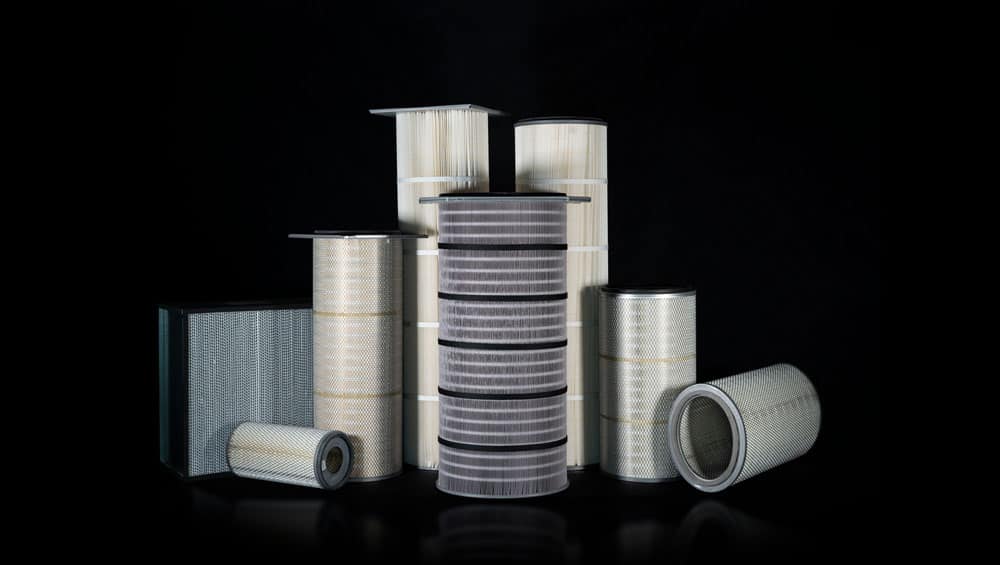
Dust Collector Cartridge Filters: Clean or Replace?
After you’ve installed your dust collection system, the big initial expense is over. However, you need to plan for your system’s regular maintenance, like replacing the industrial dust collector cartridge filters. Dust collectors that use cartridge filters have become very popular, partly because cartridge filter changes are easier.
Dust collector filters are the part of the system that clean the air traveling through the system. In a pulse jet collector with dust cartridge filters, the filter cleaning system removes dust from the surface of the filters.
All filters, though, will eventually become overloaded with particles and will need to be replaced.
Do they really have to be replaced? Why can’t you just clean them?
Can’t you just take out and clean the dust collector cartridge filters so they’ll work better again?
You can, and people do. But you shouldn’t, and here’s why.
You can measure the efficiency of a dust cartridge filter by its differential pressure. This means measuring the pressure on the dirty air side of the filter and then on the clean air side. This tells you how much the airflow is slowing down across the filters.
If your differential pressure is higher than the recommendation for your system, it’s time for a change. The filter cleaning system is not able to clean your dust collector filters anymore. It’s time to replace the filters.
There are companies that offer to clean your industrial dust collector filters instead of changing them. Usually, they do this by blasting them with high pressure compressed air to blow the accumulated dust out of the filters. The problem is that dust collector cartridge filters are made of cellulose and polyester, which means a large part of the filter is cardboard. When you try to clean industrial dust collector filters this way, the high-pressure air will create holes in the filter material.
You might not be able to see the holes. It may seem like the filter cleaning worked perfectly. The filters get put back in the dust collector, and the differential pressure is much lower.
The pressure isn’t lower because the filters are clean, though. It’s lower because air is going straight through the little holes torn in your filter.
How big a problem are those little holes in the cartridge filters?
Cleaning your dust collector filters can put holes in them, but how much dust is really going to get through those tiny holes? The answer is “a lot”. Air follows the path of least resistance. The filter material has resistance. The holes don’t. The air going through the dust collector cartridge filters will go through the holes, taking dust with it.
This is a serious problem for several reasons.
First, dust will be getting through your dust collector filters. Depending on where your air is venting, it’s going out into the environment or back into your facility. Either way, this could result in fines or health problems for employees.
Second, dust that gets through the filters can build up in the clean air plenum. There should never be dust in this part of the collector. The dust in there will keep blowing out into the facility even if you fix the filters.
Third, the differential pressure will be lowered because air can easily get through the holes. This could make it look like the filters are clean and working well, even though they are damaged. This makes it hard to recognize that the dust collector filters are not doing their job.

You’re Not Saving Money by Cleaning Your Dust Collector Cartridge Filters
Industrial dust collector filters are made of a cardboard-based material that is not made to be cleaned and re-used. While it looks like the filters are cleaned and working better, what you’re really seeing is filters that have been damaged. Read about offline cartridge filter cleaning.
Instead of trying to save money by having your filters cleaned, contact Imperial Systems and ask us about DeltaMAXX filters. They last longer than the competitors’ filters, so you’ll save money on your industrial dust collector filters over time.
Read more